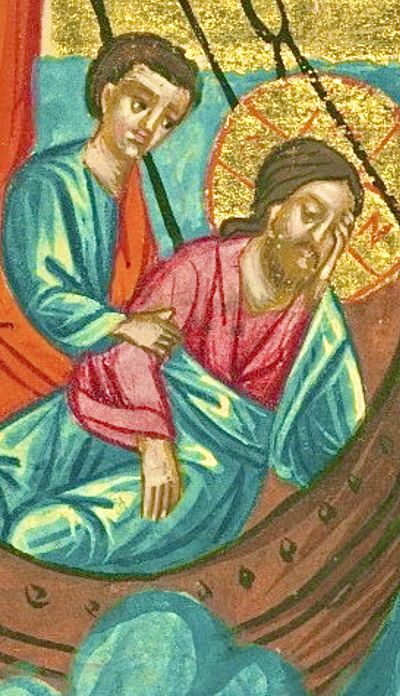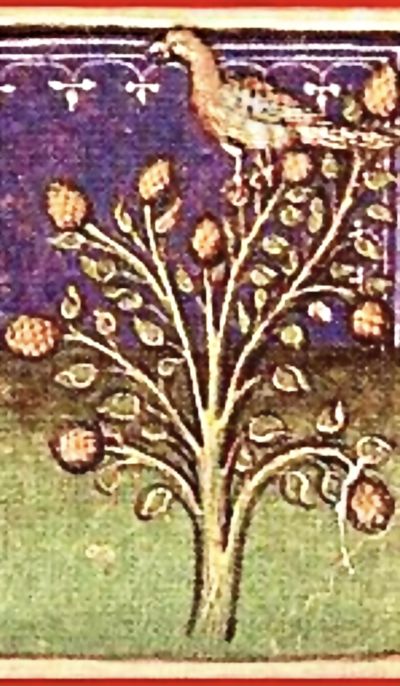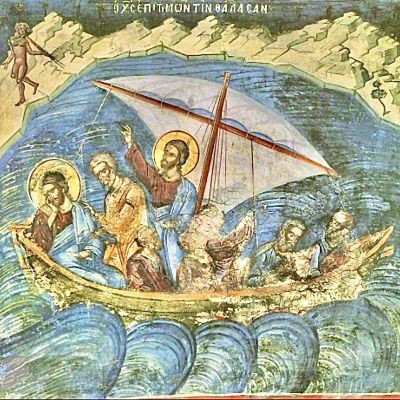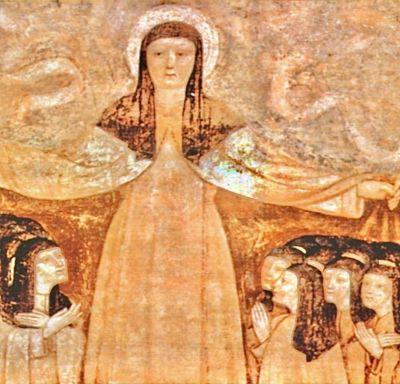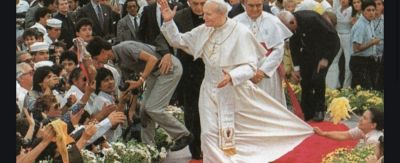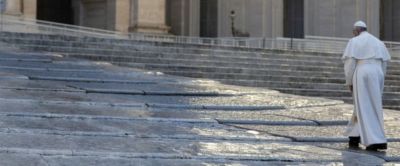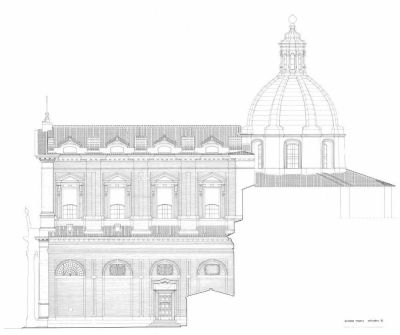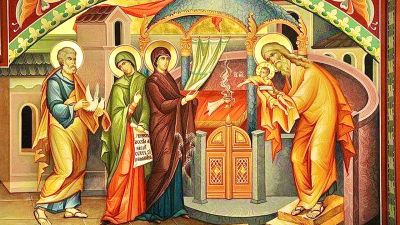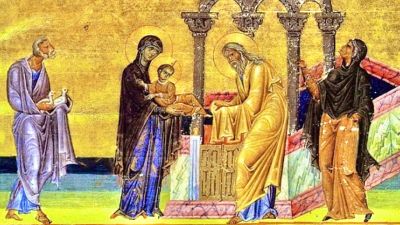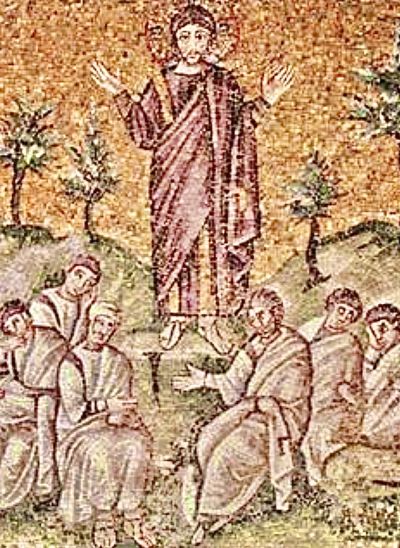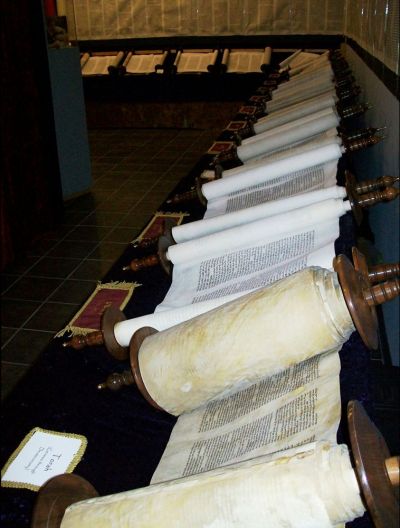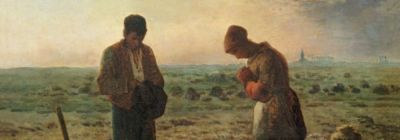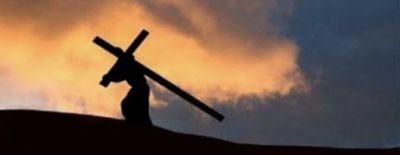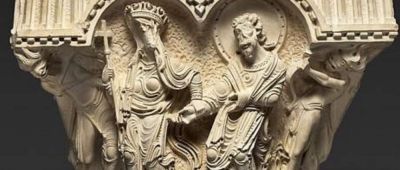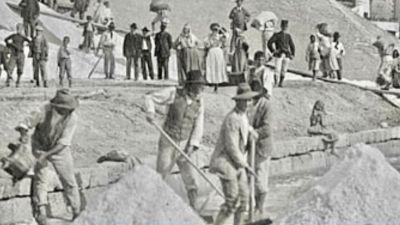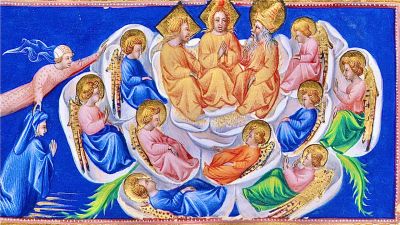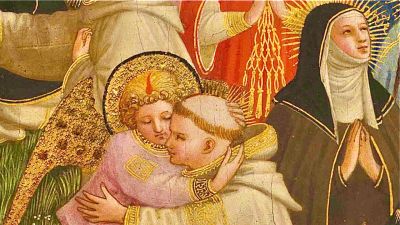Dialogo e Solstizio
(Mk 4:35-41) The whole Gospel of Mk is an articulated answer to the question: ‘who is Jesus?’ (v.41). His direction of travel seems to the wrong direction, and brazenly breaks…
Published in
Commento breve
From below, not from a summit (Mk 4: 26-34) Here we are introduced to a different mentality, to a new Family, to another Kingdom, not very "elevated"; indeed, completely reversed.…
Published in
Commento precedente
In this passage from the Gospel of Mark, the episode of the storm calmed by the Lord of history and glory is narrated. Jesus commands the winds and says to…
Published in
Aforisma
Jesus tells parables about the Kingdom of God, taking his cue from the elements of nature: seed, ear, mustard seed, and more. With natural and real hooks he explains the…
Published in
Angolo dell'avanguardista
The storm calmed on the Lake of Genesaret can be reread as a "sign" of Christ's constant presence in the "boat" of the Church, which many times throughout history is…
Published in
Angolo dell'ottimista
We have just heard the Gospel reading of the calming of the storm, which was presented with a brief but incisive passage from the Book of Job, in which God…
Published in
Angolo del tradizionalista
Today’s liturgy tells the episode of the storm calmed by Jesus (Mk 4:35-41). The boat in which the disciples are crossing the lake is beaten by the wind and the…
Published in
Angolo dell'apripista
Obsession and Compulsion A gentleman confides in me that for some time now he has felt the need to check whether he has locked the front door of his house.…
Published in
Angolo dell'artista
Published in
Angolo dell'internazionalista
Media
Fourth Sunday in Ordinary Time (year A) [1 February 2026] May God bless us and may the Virgin protect us. Rereading and meditating on the Beatitudes in Matthew's Gospel is…
Published in
Angolo della Pia donna
(Mt 5:1-12a) Matthew 5:3 «Blessed are the poor in spirit, for theirs is the kingdom of heaven». "Blessed are the poor in spirit, for theirs is the kingdom of heaven."…
Published in
Art'working
(Mk 4:35-41) Excita, Domine, potentiam tuam, et veni "Excita, Domine, potentiam tuam, et veni" - with these and similar words the Church's liturgy repeatedly prays [...]. These invocations were probably…
Published in
Preghiera critica
From below, not from a summit (Mk 4: 26-34) Here we are introduced to a different mentality, to a new Family, to another Kingdom, not very "elevated"; indeed, completely reversed.…
Published in
Rivoluzione della Tenerezza
The Risk of Truth (Mk 4:21-25) That of Mk is a narrative and popular catechesis, reflecting the problems of a very primitive community of Faith - compared to those of…
Published in
Croce e Vuoto
A new God: perhaps a deluded one? (Mk 4:1-20) In a world that has lost its references but is perhaps trying to create more authentic and profound ones, the mission…
Published in
il Mistero
And quite often we too, beaten by the trials of life, have cried out to the Lord: “Why do you remain silent and do nothing for me?”. Especially when it seems we are sinking, because love or the project in which we had laid great hopes disappears (Pope Francis)
E tante volte anche noi, assaliti dalle prove della vita, abbiamo gridato al Signore: “Perché resti in silenzio e non fai nulla per me?”. Soprattutto quando ci sembra di affondare, perché l’amore o il progetto nel quale avevamo riposto grandi speranze svanisce (Papa Francesco)
The Kingdom of God grows here on earth, in the history of humanity, by virtue of an initial sowing, that is, of a foundation, which comes from God, and of a mysterious work of God himself, which continues to cultivate the Church down the centuries. The scythe of sacrifice is also present in God's action with regard to the Kingdom: the development of the Kingdom cannot be achieved without suffering (John Paul II)
Il Regno di Dio cresce qui sulla terra, nella storia dell’umanità, in virtù di una semina iniziale, cioè di una fondazione, che viene da Dio, e di un misterioso operare di Dio stesso, che continua a coltivare la Chiesa lungo i secoli. Nell’azione di Dio in ordine al Regno è presente anche la falce del sacrificio: lo sviluppo del Regno non si realizza senza sofferenza (Giovanni Paolo II)
For those who first heard Jesus, as for us, the symbol of light evokes the desire for truth and the thirst for the fullness of knowledge which are imprinted deep within every human being. When the light fades or vanishes altogether, we no longer see things as they really are. In the heart of the night we can feel frightened and insecure, and we impatiently await the coming of the light of dawn. Dear young people, it is up to you to be the watchmen of the morning (cf. Is 21:11-12) who announce the coming of the sun who is the Risen Christ! (John Paul II)
Per quanti da principio ascoltarono Gesù, come anche per noi, il simbolo della luce evoca il desiderio di verità e la sete di giungere alla pienezza della conoscenza, impressi nell'intimo di ogni essere umano. Quando la luce va scemando o scompare del tutto, non si riesce più a distinguere la realtà circostante. Nel cuore della notte ci si può sentire intimoriti ed insicuri, e si attende allora con impazienza l'arrivo della luce dell'aurora. Cari giovani, tocca a voi essere le sentinelle del mattino (cfr Is 21, 11-12) che annunciano l'avvento del sole che è Cristo risorto! (Giovanni Paolo II)
Christ compares himself to the sower and explains that the seed is the word (cf. Mk 4: 14); those who hear it, accept it and bear fruit (cf. Mk 4: 20) take part in the Kingdom of God, that is, they live under his lordship. They remain in the world, but are no longer of the world. They bear within them a seed of eternity a principle of transformation [Pope Benedict]
Cristo si paragona al seminatore e spiega che il seme è la Parola (cfr Mc 4,14): coloro che l’ascoltano, l’accolgono e portano frutto (cfr Mc 4,20) fanno parte del Regno di Dio, cioè vivono sotto la sua signoria; rimangono nel mondo, ma non sono più del mondo; portano in sé un germe di eternità, un principio di trasformazione [Papa Benedetto]
In one of his most celebrated sermons, Saint Bernard of Clairvaux “recreates”, as it were, the scene where God and humanity wait for Mary to say “yes”. Turning to her he begs: “[…] Arise, run, open up! Arise with faith, run with your devotion, open up with your consent!” [Pope Benedict]
duevie.art
don Giuseppe Nespeca
Tel. 333-1329741
Disclaimer
Questo blog non rappresenta una testata giornalistica in quanto viene aggiornato senza alcuna periodicità. Non può pertanto considerarsi un prodotto editoriale ai sensi della legge N°62 del 07/03/2001.
Le immagini sono tratte da internet, ma se il loro uso violasse diritti d'autore, lo si comunichi all'autore del blog che provvederà alla loro pronta rimozione.
L'autore dichiara di non essere responsabile dei commenti lasciati nei post. Eventuali commenti dei lettori, lesivi dell'immagine o dell'onorabilità di persone terze, il cui contenuto fosse ritenuto non idoneo alla pubblicazione verranno insindacabilmente rimossi.


